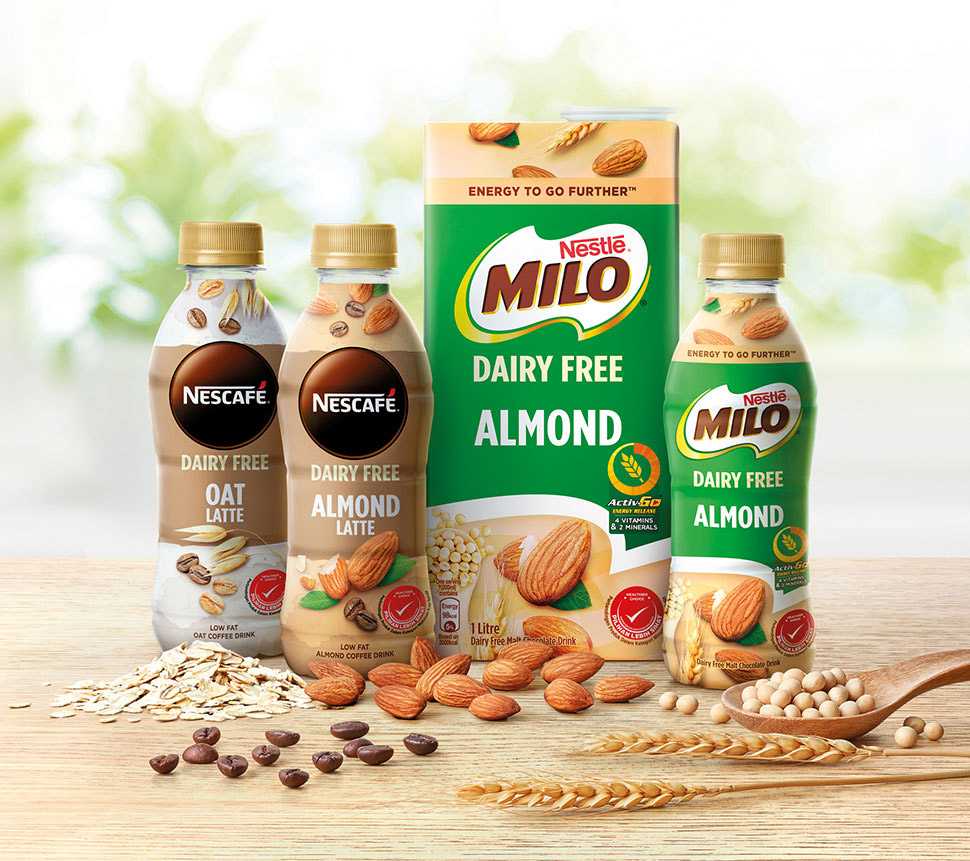VEVEY, Switzerland – As consumers in Asia are including more dairy alternatives in their diet, Nestlé is launching plant-based versions of some of its most-loved brands in the region. That now includes a new plant-based version of Milo, the world’s leading chocolate malt beverage that is enjoyed in many Asian countries. It will be launched in Asia, starting first in Malaysia, a country with generations of Milo fans going back 70 years to its launch there in 1950. Nestlé Malaysia will also be introducing a range of plant-based Nescafé lattes. Both will appear on shelves this April.
The development teams worked hard to deliver the iconic Milo taste while using only plant-based ingredients. This new version replaces the milk in the original recipe with almond and soy, but the other two core ingredients – malt and cocoa – remain the same.
Each bottle offers 6.5 grams of protein and is also low in sugar, with a combination of vitamins and minerals to support effective energy release.
It follows the launch of a plant-based Milo powder in Australia in 2020, a launch that created huge excitement in the country where Milo was first introduced in 1934.
Mayank Trivedi, Head of the Dairy Strategic Business Unit at Nestlé, said: “Milo is an iconic brand in Malaysia and across Asia, and much-loved across generations. We want to provide consumers with on-trend alternatives in formats they want. That’s why we’re delighted to launch Milo Dairy Free to support people’s lifestyle choices.”
A whole latte flavor
Nestlé Malaysia is also launching a plant-based version of another iconic brand – Nescafé oat and almond lattes
Plant-based coffee mixes are a popular and growing category. Nestlé has already introduced them cross a number of countries in Europe, Latin America and Oceania, and most recently launched a range of plant-based Nescafé and Starbucks lattes in Japan.
The Nescafé Dairy Free Almond Latte combines almond and pea, while oat and soy are the main ingredients for the Nescafé Dairy Free Oat Latte. Both are blended perfectly with smooth Nescafé coffee and can be enjoyed hot or cold.
Plant-based discovery
Using its expertise in dairy products and plant-based proteins, Nestlé is focused on developing a wide variety of dairy alternatives that complement the everyday diet of people. This includes products made from pea, rice, oat, soy, coconut and almonds.
“We’re expanding our offerings across Asia by developing a variety of great-tasting, nutritious and sustainable plant-based products.” says Guglielmo Bonora, Head of Nestlé’s R&D Center in Singapore. “We want to make it easier for people to embrace plant-based alternatives in their diet, while also reducing our carbon footprint across the supply chain.”
Nestlé’s R&D center in Singapore serves as the regional innovation hub for the development of plant-based dairy alternatives in Asia. The center collaborates closely with Nestlé’s global R&D network of around 300 scientists, engineers, and product developers who are active in the research and development of plant-based products.
A rising trend
According to a recent survey by GlobalData, over 40% of consumers in the Asia region are shifting to more plant-based diets, with 11% opting for vegetarian and vegan food, and a third moving to a ‘flexitarian’ diet that is lighter on meat and dairy products.
The need for plant-based dairy alternatives that taste great and offer strong nutritionals is rising, as more families are following this trend. In particular, many consumers cite environmental reasons, as plant-based proteins are produced with significantly lower emissions, land- and water usage.

















